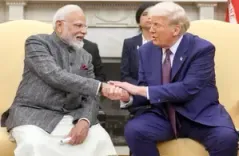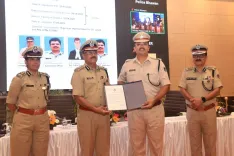William Dalrymple: India Has Yet to Share Its True Historical Narrative

Thiruvananthapuram, Nov 30 (NationPress) India has yet to receive the recognition it deserves for its significant role as the hub of knowledge and global trade, while nations such as China and Greece have developed narratives that emphasize their contributions to humanity, remarked prominent author William Dalrymple during the final day of the three-day Huddle Global event.
Addressing India’s emergence as a technological powerhouse, Dalrymple noted that this is not the first instance of Indian knowledge contributing to human progress.
"India has long been a region that tackled the profound questions of existence, such as our purpose, how to lead an ethical life, the relationship between the earth and the heavens, and the dimensions of our planet," he stated.
"It is intriguing to consider why figures like Archimedes and Pythagoras are well-known in the West, yet the name Brahmagupta, whose contributions led to the concept of zero and our understanding of the solar system’s structure, remains largely unknown," added the distinguished author, whose latest work, The Golden Road: How Ancient India Transformed the World, showcases India's historical impact on trade, science, and religion.
Aryabhata suggested that the Earth was not the universe's center long before Galileo received credit for this discovery. He emphasized that the knowledge developed in India later became tools for European colonizers, enabling them to establish control and reap economic benefits.
Dalrymple mentioned that visiting Chinese scholars were astonished by the Takshashila University, a thriving educational institution at the time, whose architectural design has influenced educational institutions worldwide, particularly with learning centers designed around expansive courtyards. However, he remarked that India has yet to excavate 90% of the Nalanda University ruins in present-day Bihar to strengthen its historical claims.
Additionally, Dalrymple highlighted that India’s ancient maritime trade routes were significantly more vibrant than China’s Silk Road. The interactions between Indian ports, especially Muziris along the western coast, and regions like Rome and Egypt, were of great importance. Ancient India had deeper connections with Mediterranean, Persian, and Greek cultures than commonly acknowledged, resulting in reciprocal influences on art and scholarship.








